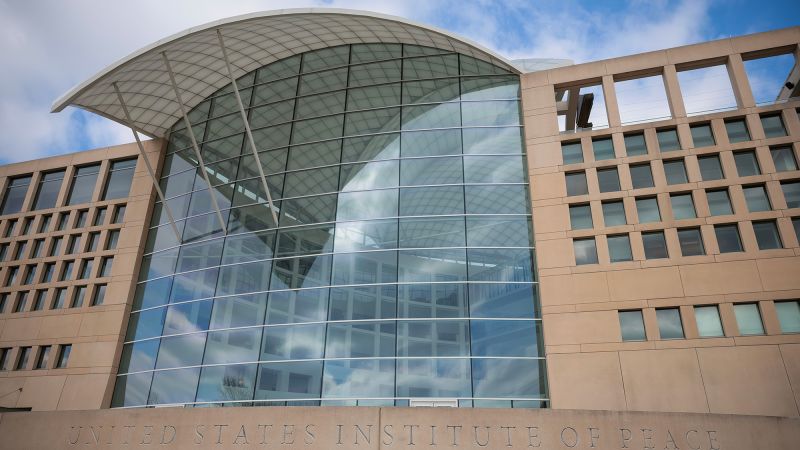A recent ruling from a federal judge has cast a shadow over the Trump administration’s methods of exerting control over agencies that are meant to operate independently. In a decision made on a Monday, US District Judge Beryl Howell determined that the removal of the board of the United States Institute of Peace (USIP) earlier this year by the Trump administration was unlawful. As a result, the actions taken by officials appointed by the Department of Government Efficiency (DOGE), which seemed aimed at debilitating the agency, were deemed “null and void.” This ruling has been interpreted as another setback for the Trump administration, particularly in its attempts to exert control over independent bodies
The US Institute of Peace is not an ordinary federal agency. It is a nonpartisan, independent organization that was established by Congress in 1984. One of the defining features of USIP is that it manages its headquarters, which underscores its autonomy from the executive branch of government. Judge Howell, who was appointed by former President Barack Obama, articulated in her 102-page ruling that the actions of the Trump administration—specifically the President’s second-guessing of the judgment made by Congress and President Ronald Reagan at the time of USIP’s founding—were inappropriate and erroneous.
In a critical move earlier this year, the Trump administration terminated most of USIP’s board members, including acting President George Moose. The remaining board members, which included prominent officials such as Defense Secretary Pete Hegseth, Secretary of State Marco Rubio, and National Defense University President Peter Garvin, moved to install Kenneth Jackson as acting president of USIP. This abrupt redirection sparked significant controversy and legal challenges.
Days following the board’s removal, personnel from DOGE, together with police from Washington, D.C., forced their way into USIP’s headquarters after facing initial refusal to enter the building. This aggressive move further escalated tensions between the administration and USIP officials, particularly with Moose, a retired career diplomat who remained inside the building during this tumultuous period. Eventually, he was obliged to vacate the premises under orders from the D.C. police, prompting a desperate response from USIP.
In the face of these aggressive actions, USIP quickly took legal measures by filing a lawsuit against the federal government. The lawsuit aimed to prevent the agency’s dismantlement, the transfer of the USIP’s private assets—including its building and financial endowment—to the federal government, and to restore its board. The situation surrounding USIP came to embody a significant clash between administrative power and established norms governing independent agencies.
In her ruling, Judge Howell emphasized the severity of the administration’s tactics, describing them as using “brute force and threats of criminal process” to seize control of USIP’s operations. She noted that they were warned that USIP did not fall under executive branch authority and that its leadership was not subject to removal by unilateral executive action. Howell condemned the actions taken against USIP, highlighting that the administration’s efforts to disband the organization included the termination of its appointed board members, expert management, and its dedicated staff situated globally, in addition to the attempted dispersal of its headquarters and assets.
These judicial conclusions reinforce the principle that even in political landscapes marked by power struggles, the rule of law must prevail. Howell’s ruling is significant not only for USIP but also for the broader relationship between the executive branch and independent agencies. It stands as a reminder of the foundational tenets of governance in the United States, where Congress’s intent in creating independent bodies must be respected, and unilateral action from the executive branch to dismantle these bodies cannot be allowed to go unchecked. The implications of this ruling are bound to be felt in political debates and administrative practices moving forward.



